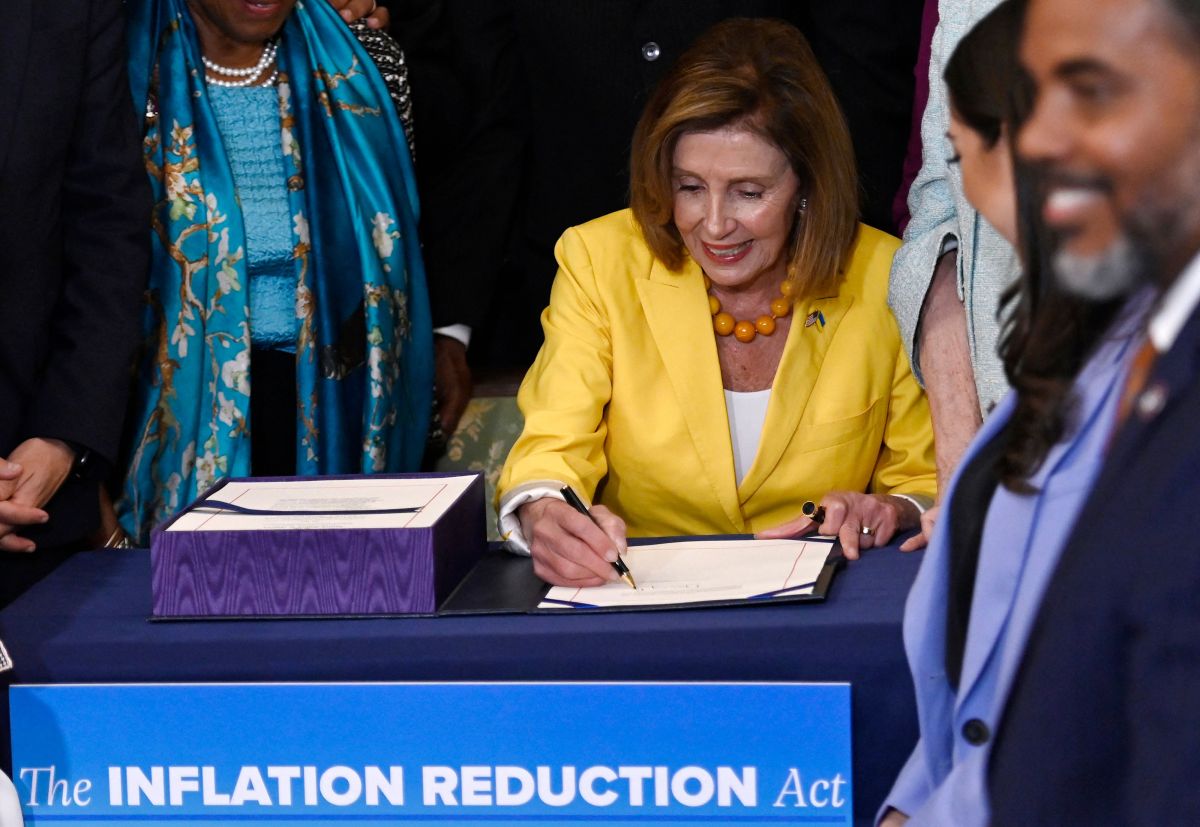The Inflation Reduction Act (IRA, for its acronym in English) which was signed on 15 of August this year, includes about $90 billion in measures to combat global climate change. According to experts, it was sealed with better terms for the exploitation of oil and gas in the United States. “Inside the package there are a series of measures related to infrastructure: construction of roads, highways, bridges, etc. and there the oil companies will undoubtedly have a share that will generate demand for asphalt, which is a product from that industry”, said Juan Fernández, former manager of Petróleos de Venezuela, PDVSA.
The climate measures that were approved in the IRA are a reduced version of those of the Build Back Better Act (BBBA, for its acronym in English), which was not approved. But the IRA’s “Energy Security” provisions are more favorable to the interests of the US oil and gas industry. The reading is that there is a contradiction between subsidizing clean energy while promoting oil extraction. “It is important for the Biden Administration to take into account that if uncertainty is generated, this factor paralyzes investment in the sector. The global economy cannot pretend that its energy consumption pattern changes from one day to the next to renewable energies, for example from the sun, wind, etc. that they have many opportunities to be important in that energy supply portfolio: hydrogen, gas, nuclear, even fusion, etc., but it is a process that takes time”, explained the former PDVSA manager.
In BBBA a total ban on drilling in the outer continental shelf of the USA was requested, in IRA the offshore leasing program was put into effect. The Biden Administration announced that new concession sales would potentially be allowed in both the Gulf of Mexico and the Cook Inlet in Alaska. This new plan establishes where the government can sell oil and gas leases from 2022 to 2027. The approval of the project depends on the participation of the public, who will have until the beginning of October to present their comments. The proposed schedule includes an alternative that would not schedule new lease sales for offshore drilling. July 8 marked the opening of the 90 day public comment period on the proposed Program. This comment period is the last opportunity for the public to provide input before the advertised schedule is finalized. You can access this link.
Check energy prices
At the end of March of this year, President Biden ordered the release of one million barrels a day from the strategic oil reserve for six months with the aim of controlling the increase in energy prices. “The concept that the supply of oil increases is in line with economic theory, if the supply of oil increases and there is a demand that is not satisfied, the price should fall. One of the measures that President Biden took was to have oil from the strategic reserve and that is to increase the supply so that the price decreases. The US produces close to 12 million barrels per day and it is likely that this production will increase”, stated. the oil expert.
According to Fernández, the important thing is to comply with the objective of avoiding the increase in temperature. “The most important approach must be to achieve decarbonization in order to achieve the objectives of the “Paris Agreement”, which is none other than to prevent the increase in the average global temperature of the planet from exceeding 1.5 ºC compared to pre-industrial levels. . Government action is important because if it is not clear, it obviously affects the supply of hydrocarbons and that is going to be reflected in prices.” The IRA proposal will reduce US carbon emissions by 40 percent for 2030, which does not reach the reduction of 50 percent of the levels of 2005 to which the US committed itself in the “Paris Agreement”.
A study by Oliver Wyman, an American management consulting company, called “The road to decarbonization” assures that the big oil companies must aim for a transforming its business model into one based on what it will take for energy companies to thrive in a future threatened by climate change. According to the Environmental Protection Agency, (EPA), the combustion of fossil fuels from various industrial processes accounted for approximately 15,4% of total CO2 emissions in the US
*Johani Carolina Ponce is a Venezuelan journalist who works with the ORorganization Sachamama.org as Latino Media Engagement Manager of the Huella Program Zero.
